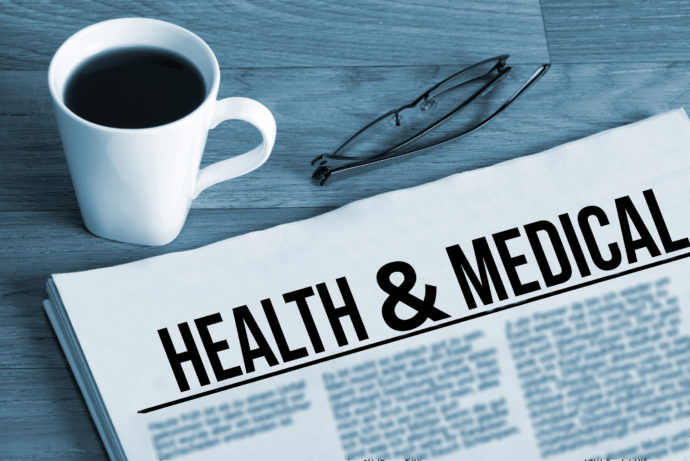
—————————————————————————–
Can Classical Music Improve Quality of Life for Heart Failure Patients?
Music lovers rejoice! This multicenter, randomized controlled trial, published in the Journal of Cardiac Failure, included 159 patients with HF randomized 1:1 into two study groups. The first group was the intervention group (exposed to music) and a control, and the patients were evaluated at 30 days, 60 days, 90 days, and at six months. On average, patients in the music intervention group saw greater improvements in their heart failure-specific quality of life (P<0.001), generic quality of life (P=0.05), sleep quality (P=0.007), anxiety/depression levels (P<0.001 for both), and also cognitive performance (P=0.003). The article was accompanied by two editorials, one of which was co-authored by internationally renowned opera singer Renee Flemming.
https://www.docwirenews.com/docwire-pick/cardiology-picks/music-intervention-heart-failure-improvements-quality-of-life/
–
Inflammation Marker Associated with Recurrent AFib Following CABG
This study included more then 6,700 patients undergoing isolated coronary artery bypass graft (CABG) surgery for the first time. The authors divided the patients into quartiles based on C-reactive protein level and used multivariable logistic regression analysis to determine the link between the levels and post-operative AFib. After adjustment, it was observed that those in the highest C-reactive protein group had a higher risk for developing post-operative AFib than those in the lowest group (OR-1.31; 95% CI, 1.12 to 1.54). “Increased postoperative C-reactive protein levels after CABG surgery was associated with the development of post-operative AFib,” the authors concluded.
https://www.docwirenews.com/condition-center/c-reactive-protein-levels-postoperative-atrial-fibrillation-risk/
–
Many COVID-19 Patients Shown to Have Heart Abnormalities
This international survey, published in the European Heart Journal: Cardiovascular Imaging, evaluated echocardiographic findings captured in patients with presumed or confirmed COVID-19 during a three-week period in April 2020. The authors recorded patient characteristics, indications, findings, and the impact of echocardiographic management. The analysis included 1,216 patients from 69 countries. In the 901 patients without pre-existing cardiac disease, there were abnormal echocardiograms in 46% of patients and severe disease in 13%. They authors reported independent predictors of left and right ventricular abnormalities, including elevated natriuretic peptides (adjusted OR=2.96; 95% CI, 1.75 to 5.05) and also cardiac troponin (OR=1.69; 95% CI, 1.13 to 2.53) for left ventricular abnormalities, and severity of COVID-19 symptoms (OR=3.19; 95% CI, 1.73 to 6.10) for right ventricular abnormalities.
https://www.docwirenews.com/docwire-pick/cardiology-picks/covid-19-echocardiographic-findings-cardiac-abnormalities/
–
COVID-19 Worsens Stroke Outcomes
This analysis looked at patients from 28 different centers in 16 countries hospitalized with COVID-19 and acute ischemic stroke between late January and May 2020. The study population included 174 patients matched with non-COVID acute stroke patients. The final study cohort with the matched patients (1:1) was comprised of 330 patients. The researchers evaluated stroke severity using the National Institute of Health Stroke Scale (NIHSS), with outcomes assessed using the modified Rankin score (mRS). Patients with COVID-19 had higher NIHSS scores compared to those without (10 vs. 6, P=0.03).
https://www.docwirenews.com/docwire-pick/cardiology-picks/covid-19-ischemic-stroke-mortality-risk-worse-outcomes/
–







 © 2025 Mashup Media, LLC, a Formedics Property. All Rights Reserved.
© 2025 Mashup Media, LLC, a Formedics Property. All Rights Reserved.